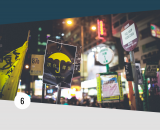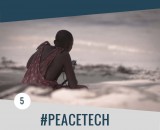A Model National Action Plan in Bosnia and Herzegovina
Samra Filipovic-Hadziabdic is currently director of the Gender Equality Agency of Bosnia and Herzegovina. As advisor to the president of the Federation of Bosnia and Herzegovina, she also established and directed the Gender Center. Mariam Mansury is the Community of Experts manager for the newest program at Inclusive Security, Resolution to Act. She is responsible for managing the process of recruiting, selecting, deploying, and liaising regularly with each of the community’s experts.

The vision of UN Security Council Resolution 1325, adopted on October 31, 2000, is historic: It recognizes women not only as victims of war but also as agents of change with the potential to stem violence, reconcile communities, and sustain peace in conflict-affected environments across the globe. Since 2000, forty-three countries have developed national action plans (NAPs) to fulfill the promise of Resolution 1325 and meaningfully advance women’s inclusion in security processes and decisions.
The action plan for Bosnia and Herzegovina (BiH) was launched in 2010. It was the first NAP of its kind in southeast Europe and one of the first to be adopted in a post-conflict country. BiH’s Agency for Gender Equality, established in 2004, developed the NAP through a year-long series of consultations with relevant government and civil society actors. The agency’s mandate includes developing national policies to promote gender equality, preparing annual reports on the status of gender issues in BiH, and evaluating laws and by-laws adopted by the government with a gender lens. A twenty-member coordination board was established in June 2011 to monitor NAP implementation; members include officials from relevant ministries and agencies such as the ministries of defense and foreign affairs, as well as representatives of civil society organizations.
After the NAP expired at the end of 2013, key questions remained: Did the plan inspire measurable policy change to advance women’s inclusion in peace and security processes? Did implementation have meaningful effects across BiH? To answer these questions, the Agency for Gender Equality commissioned an assessment from Resolution to Act, a groundbreaking new initiative supporting countries creating or implementing NAPs and similar strategies. The results confirm that the BiH NAP is, in many ways, a global model; the country has even received awards from the United Nations and the North Atlantic Treaty Organization (NATO) for effective NAP implementation.
There are three primary reasons for BiH’s success. First, the NAP goals fit within existing government mandates on peace and security, maximizing the skills of experienced personnel and promoting cooperation across government sectors. Second, thanks to Agency for Gender Equality leadership, the NAP is widely viewed as an organic national strategy rather than an international obligation. The agency is a highly valued technical resource, offering government officials practical and realistic guidance on how to integrate the NAP into their daily work, and its coordination board facilitates collaboration among key policymakers. Members were involved in drafting the NAP and have met regularly for three years, resulting in a strong commitment to implementation. Finally, the NAP is a platform for realizing meaningful change. The agency worked with local government entities to develop localized NAPs in municipalities that experienced some of the most intense violence during the war. These plans focus on addressing women’s most pressing daily security concerns. Additionally, the NAP has been used to prioritize the recruitment and retention of women police officers, offering a fresh face to a security force that is all too often associated with the past conflict.
Challenges remain. More is required in harmonizing the NAP with internal policies and processes. The current evaluation framework also does not adequately capture the intermediate progress in transforming society’s views on women’s inclusion in peace and stability processes. Moreover, NAP goals are not prioritized within institutional strategies, resulting in inadequate funds for implementation. The Agency for Gender Equality is addressing these gaps in preparation for launching a new NAP in 2014. The coordination board for the implementation of the NAP recently signed a memorandum of understanding with thirteen civil society organizations for collaboration on the NAP, the only partnership of its kind in the country. Efforts are already under way to develop a comprehensive monitoring and evaluation system. Taken together, such steps will create an even more effective NAP that contributes to lasting peace for all.

